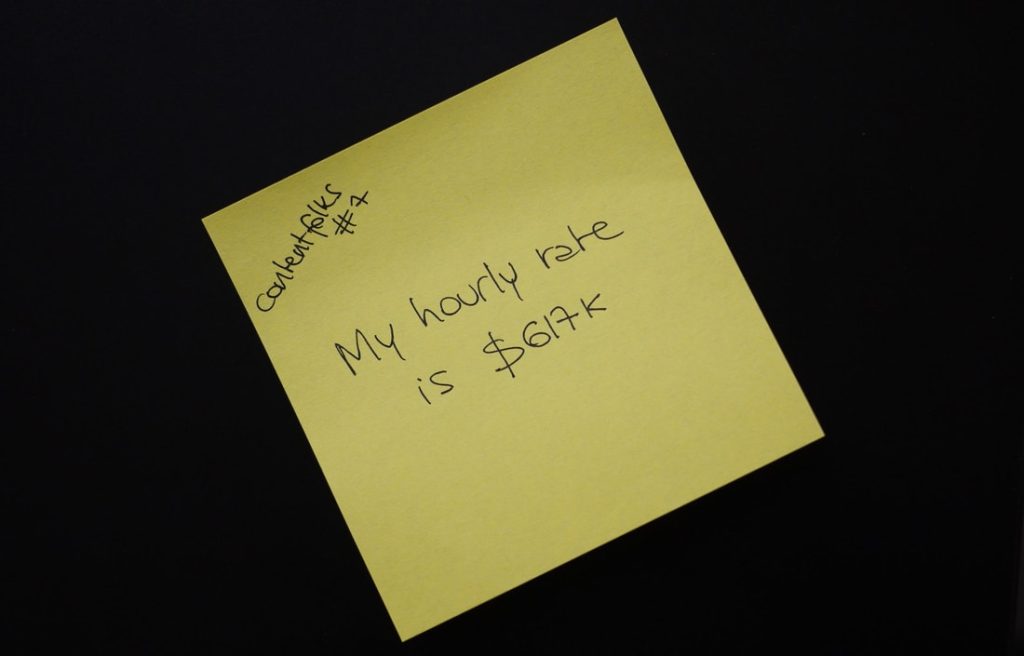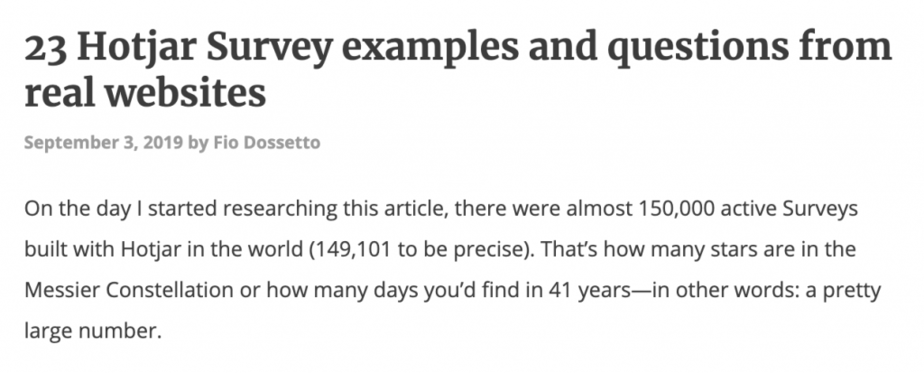
Welcome to contentfolks—a fortnightly newsletter with short lessons & ideas about content that makes a difference, sparks action, and truly serves its audience. Thank you for being here!
Hey there 👋
For most of you, this is the week between Christmas and the end of the year. For me, it’s my birthday week! And I’m going to use this factoid to exemplify today’s content marketing lesson, which is about making stupidly large numbers* easy to understand for your audience.
*and NO!, I’m not talking about my age here 😉
💰 A practical example 💰
The other day I read that Jeff Bezos’ fortune is calculated at around $200 billion. That’s obviously a stupidly large number, but you probably don’t have a tangible sense of just how big it is. And neither do I—as humans, we’re not wired to make sense of large quantities, so 20 billion or 200 billion look pretty much the same.
So I thought we could try and make this number a bit easier to understand.
Because it’s my birthday week, I’ve now officially been on the planet for over 13,500 days. If for each and every day of my life I had earned $14,814,814 million—yes that is about fifteen MILLION dollars a DAY for over three decades—today my wealth would match Bezos’.
Or, if you prefer a different measurement: I’ve been around for something like 324,000 hours. If for each and every hour of my life I had earned $617,283—yes that is six hundred and twenty three THOUSAND dollars an HOUR—today I’d be as rich as him.
Puts it in perspective, doesn’t it?
I bet we now all have a better grasp of just much of a f*ckton $200 billion is.
Translate your numbers into concepts your audience understands
I make this point because our cognitive systems are NOT made to grasp enormous quantities—but stupidly large numbers show up in our content all the time: the billions of hours saved by this or that automation, the trillion database rows in this or that software. And it’s our job to break these quantities down and relate them to concepts our audience already understands.
For example:
- Early this month, the Japanese probe Hayabusa came back to earth after a 5.2 billion km journey in space → that’s the equivalent of 232,600 flights from Lisbon to Tokyo, and back
- Google processes 3.5 billion searches per day → if you were processing one search per second yourself and you worked non-stop 24/7, it would take you 110 years to finish the job
- Salesforce recently acquired Slack for $27.7 billion → or, they could have bought 56 MacBook Pros for every single person in the United States
- And the 149,101 Hotjar surveys that were live when I wrote the article below? If you built one per day, you’d be done in 41 years:from → hotjar.com/blog/poll-examples/

See my point? The next time you write about something big, keep this in mind and find ways to make it more comprehensible and relatable for your audience.
And until then… divide 200,000,000,000 by the number of days you’ve lived, and then again by 24, and find out what your Bezos-equivalent hourly rate is! Then, if you want to give me a birthday present, email me your result so we can laugh at our stupidly large numbers together 🎁
